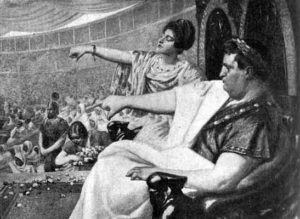This may seem like small-ball (because it is!) but I can’t sit idly by when my city’s government proudly announces their intention to shovel $75 million of public money toward building a minor-league baseball team stadium. This makes me so angry.
I earlier nominated municipal attempts to lure the Oakland Raiders to San Antonio as ‘The Worst Financial Idea of 2015,” so careful readers of this space will not be shocked to learn my view of the city’s planned $75 million taxpayer-subsidy for a downtown minor league baseball stadium.

I’ve read three opinion pieces in the last three weeks opposing the plan, and I agree with all three. I’ll offer my finance perspective below, but it’s worth reading and reviewing the other sports and visioning reasons for why this deal stinks.
Opinions against
Express-News sports columnist Roy Bragg rightly points out that AAA baseball is a bizarre reach-for-mediocrity for San Antonio. It’s a kind of “I hope we make it to the third tier of US cities!” that isn’t something we should aspire to, much less pay for with public money.
Express-News opinion columnist Josh Brodesky reminds us “there’s a reason why ‘minor league’ isn’t a compliment,” as he recalls counting the fielding errors during AAA-baseball games he watched as a kid. Teams at the AAA level resort to fan-friendly gimmicks because the game quality can’t compete with the pros.
Bob Rivard argues persuasively that on the one hand we should prioritize $75 million subsidies for other, more broadly-beneficial projects for the city. In addition, Rivard writes, baseball is a backward-looking sport for San Antonio, appealing to a kind of 20th Century fanbase when compared to the potentially 21st Century fanbase that professional soccer would enjoy here.
I agree with these writers on all points.
My own views
My own opposition stems from a mixture of finance and ethics. Financially, economists have proven stadiums to be a bust, while ethically I cringe at using public money to subsidize private sports owners. If sports owners want to build their stadiums for their for-profit businesses, I’m excited to be their fan. I don’t think we should be taxed to line their pockets, while other extraordinary needs in the city go unmet.
What economic development?
The finance case for building a stadium – all that promised ‘economic’ development’ – has been roundly debunked by economists, even if San Antonio’s leadership ignores the evidence. But it’s hard for residents who actually live in the neighborhood of The Alamodome (like me) to ignore that great white elephant’s footprint, as empty as the promises that got it built in the first place. Should I even mention the (lack of) development going on around Wolff Stadium and the AT&T Center, or is that too easy?
Not just finance
More than a finance perspective, however, I see the public financing of private businesses like stadiums in starkly moral terms.
I understand public financing of stadiums as a political strategy dating back to the Roman Empire, when ‘Panem et Circenses’ (Bread and Circuses) helped keep public order. The populi could pack into the Coliseum to spend a pleasant afternoon watching lions rend Christians limb from limb, to forget about their troubles for a while.
You and I might reasonably disagree on the best alternate use for $75 million of public funds. Rivard makes the compelling case that stimulus funds to revitalize the Broadway corridor represents a broad public good within a forward-looking city-wide agenda. Money is always scarce, so if we spend $75 million to subsidize one man’s baseball team, we don’t have that money for other worthy project like this one. I agree.

I look at it this way: How can we publicly subsidize a privately-owned business by $75 million to move downtown, when we have pressing obligations to address more basic human needs?
You know what gets me angriest about the planned $75 million subsidy for this stadium? The public sacrifice – not literally of persecuted Christians – but rather of what I learned growing up were Christian values, like being my brother’s keeper.
How do I make that ethical leap? Earlier this week the Express News reported that 1 in 4 children in Texas lives in poverty. Food insecurity for kids, in the same neighborhood where some sports owner gets a $75 million subsidy, means neglecting something fundamental. It means the ‘Bread’ part of San Antonio’s political bargain has been sorely neglected.
How can we justify everyone footing the bill for this stadium in ethical terms?
Imagine if our tax collector sent a $58 check (that’s $75 million divided by 1.3 million people) to every city resident, accompanied by a note and stamped envelope, urging them to just endorse the check over to the private owners of a baseball team? How many families could pass it on, or instead would need to use it to relieve their hunger that week? Hunger – most poignantly children’s hunger – is a kind of invisible sickness that erodes the foundations of an ethical society.
Nearly two years ago Mayor Ivy Taylor began to build her city-wide support in one of her first acts as Interim Mayor by shutting down a downtown transportation plan for streetcars that had festered long past its overdue date. This AAA-Baseball Bread & Circus plan – without even enough bread to go around! – is ethically and financial unworthy of our city, and requires another act of political courage by city leadership to stop it in its tracks.
Please see related article
Worst Financial idea of 2015: Bringing The Raiders to San Antonio
Post read (136) times.





One Reply to “More on (MORON) Public Money For Private Sports Owners”
If you are wealthy enough to own a sports team, even a minor league one, you are wealthy enough to build your own facilities without the help of taxpayers. If you are not wealthy enough to build your own facility, you are not wealthy enough to own a professional sports team.